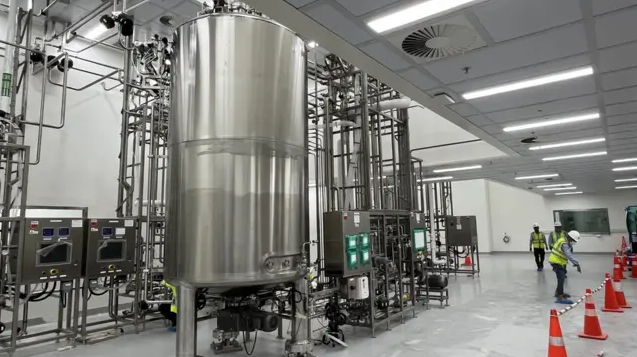New Production Facility to Advance Alternative Protein Innovation in Asia
SINGAPORE: Good Meat, the cultivated meat division of food technology company Eat Just, has commenced construction on a S$61 million meat production facility in Singapore. Slated to open in Q1 2023, the site at JTC Bedok Food City will be the largest cultivated meat facility in Asia, capable of producing tens of thousands of pounds of lab-grown meat annually.
The 30,000-square-foot facility will host 50 researchers, scientists, and engineers dedicated to advancing alternative protein production. The centrepiece will be a 6,000-litre bioreactor, the largest of its kind in the industry, to grow proteins derived from animal cells rather than slaughtered livestock.
A Vision for Sustainable Meat Production
“We see Singapore as a key hub for our mission to redefine meat production,” said Josh Tetrick, Eat Just’s CEO and co-founder. “This facility will not only launch new products but also serve as a distribution point for Asia and a space to engage with forward-thinking consumers.”
Good Meat has been at the forefront of cultivated protein innovation, with its lab-grown chicken becoming the first in the world approved for sale by the Singapore Food Agency in 2020. The company’s products are currently available in restaurants, hawker stalls, and direct-to-consumer channels.
However, Tetrick emphasised that scaling up production is critical to reaching broader markets. “We must build capacity to serve tens of millions and, eventually, billions of people,” he stated. Future plans include expanding into other proteins, such as beef and pork, to meet local and regional demand.
Advancing Singapore’s Food Security Goals
The groundbreaking event was attended by Grace Fu, Minister for Sustainability and the Environment, who highlighted the importance of alternative proteins in bolstering Singapore’s food security.
“Good Meat is pioneering sustainable methods to produce protein with less land, labour, and environmental impact,” said Minister Fu. She underscored the role of such innovations in achieving Singapore’s ‘30 by 30’ goal of producing 30 per cent of its nutritional needs locally by 2030.
The facility’s development comes as global food security challenges intensify due to climate change, geopolitical conflicts, and supply chain disruptions like Malaysia’s recent chicken export ban.
“By leveraging advanced manufacturing and biotechnology, this facility reinforces Singapore’s status as a food innovation hub and a leader in the alternative protein industry,” Fu added.
Good Meat’s new site marks a significant step in addressing global food challenges while promoting sustainable practices, further solidifying Singapore’s position at the cutting edge of food technology.








